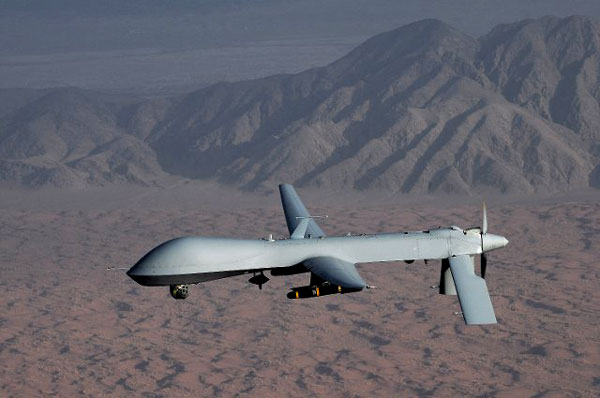Last week, Politico published an article on America’s misconception of drones, and why those misconceptions can, and should, be remedied. As technology advances, the ways in which it can be exploited grows. Drones are no exception. While steps need to be taken to ensure that privacy rights are protected from drone activities, the U.S. should not unnecessarily restrain such a valuable technology.
Today, the public has a negative perception of drones—to put it mildly. The connotation is generally that of Big Brother watching Americans going about their daily lives—all under the guise of keeping us “safe,” of course. This is far from reality.
Drones do, in fact, provide many services that keep Americans safe. These include:
- Border patrol security
- Emergency preparation and disaster response
- Cargo delivery (private sector)
- Maritime domain awareness
- Environmental monitoring (flooding, dams, levees, etc.)
- Law enforcement (pursuit or search and rescue)
Arguably, these are all things that need to be done. Drones provide a cheaper platform that keeps the pilot out of any potential danger. This raises the obvious question: If drones have good uses, then why do people think they are so bad?
Ellen Tauscher, former Undersecretary of State for Arms Control and International Security says that a big contributor to the problem is that “there are too many different names being used to describe the technology.” Having so many names floating about only exacerbates an already confusing topic.
One of the many names for drones is “unmanned aerial vehicle.” This is entirely inaccurate. Drones, like planes and helicopters, do have pilots, but they fly the drones remotely.
Another aspect of the confusion surrounding drones, according to Politico, is the secrecy that shrouds how the military uses them. It seems that this secrecy has led to speculation that has tainted the American public’s view of drones in general, both military and non-military. America needs to ensure that guidelines for the domestic usage of drones are based on fact, not speculation.
Generally, drones can and should be regulated by the laws already in place dealing with aerial surveillance. This is the route that should be taken instead of requiring a warrant for drone usage in the U.S. This would not only severely restrict the effectiveness of drones but also be a misapplication of the Fourth Amendment.
The government and the private sector need to present a coherent and clear picture to the American people of what drones really are. If the public’s inaccurate and negative perception of drones is not altered, it could influence policy to the point of depriving America of a truly valuable tool.
Sarah Friesen is currently a member of the Young Leaders Program at The Heritage Foundation. For more information on interning at Heritage, please click here.


























